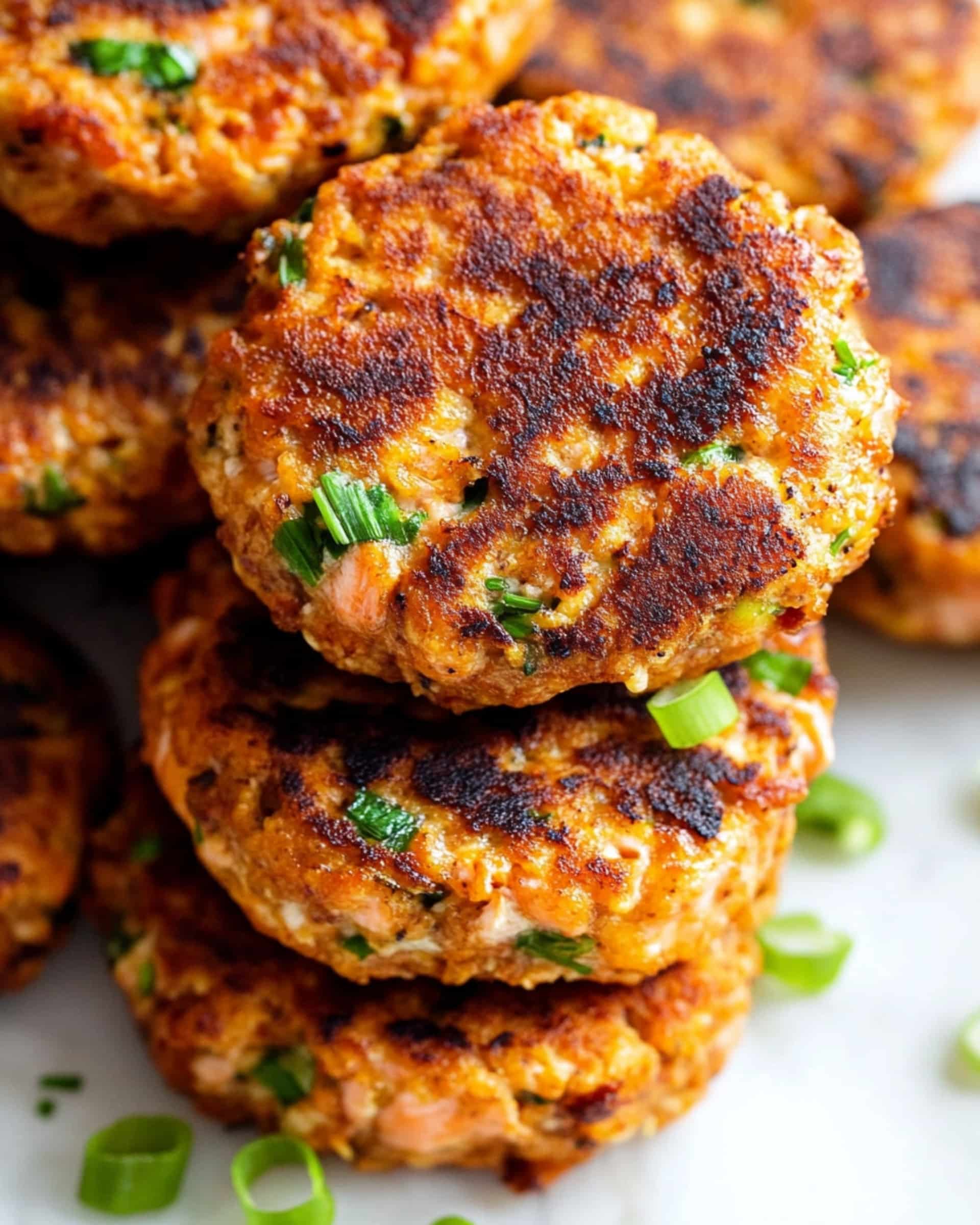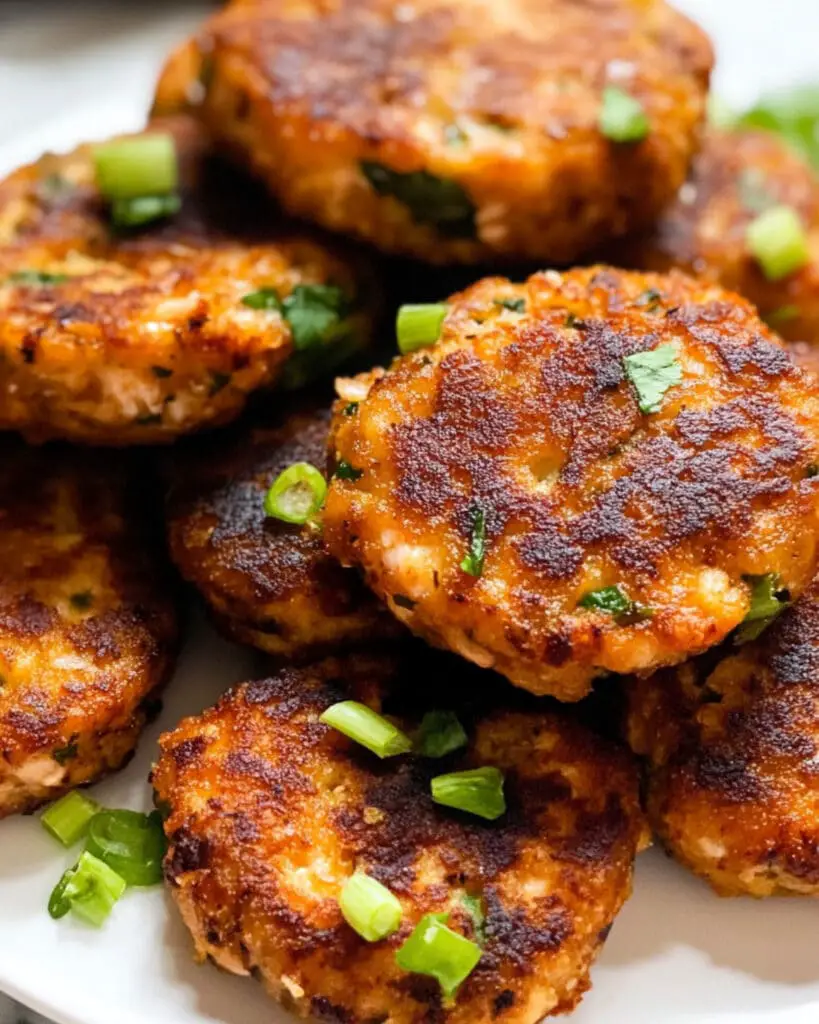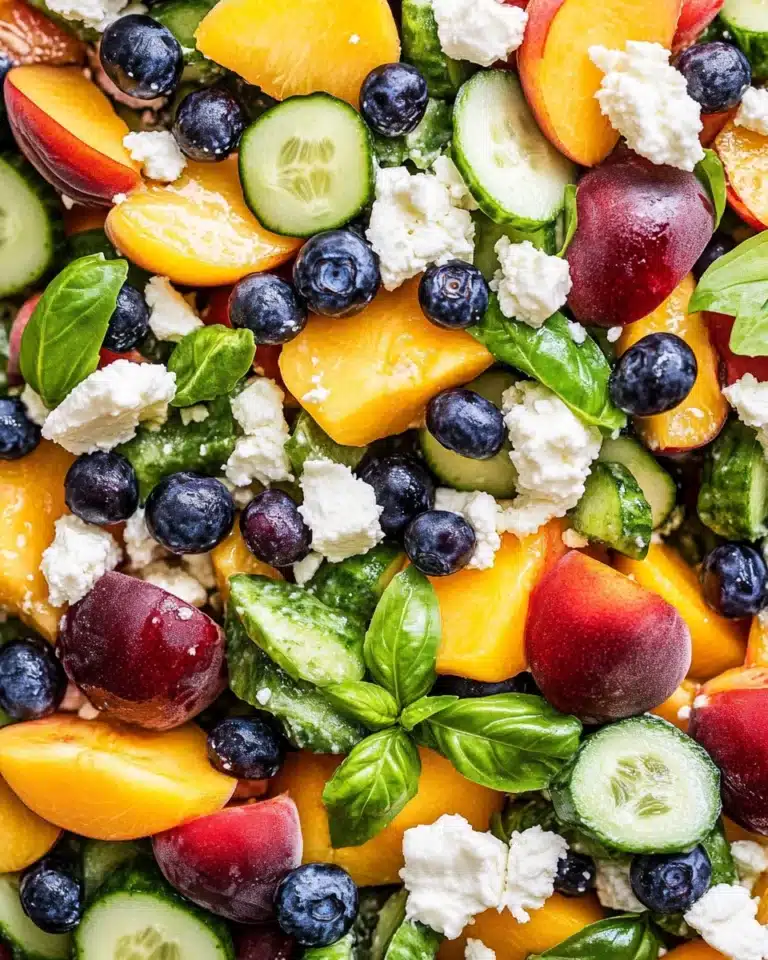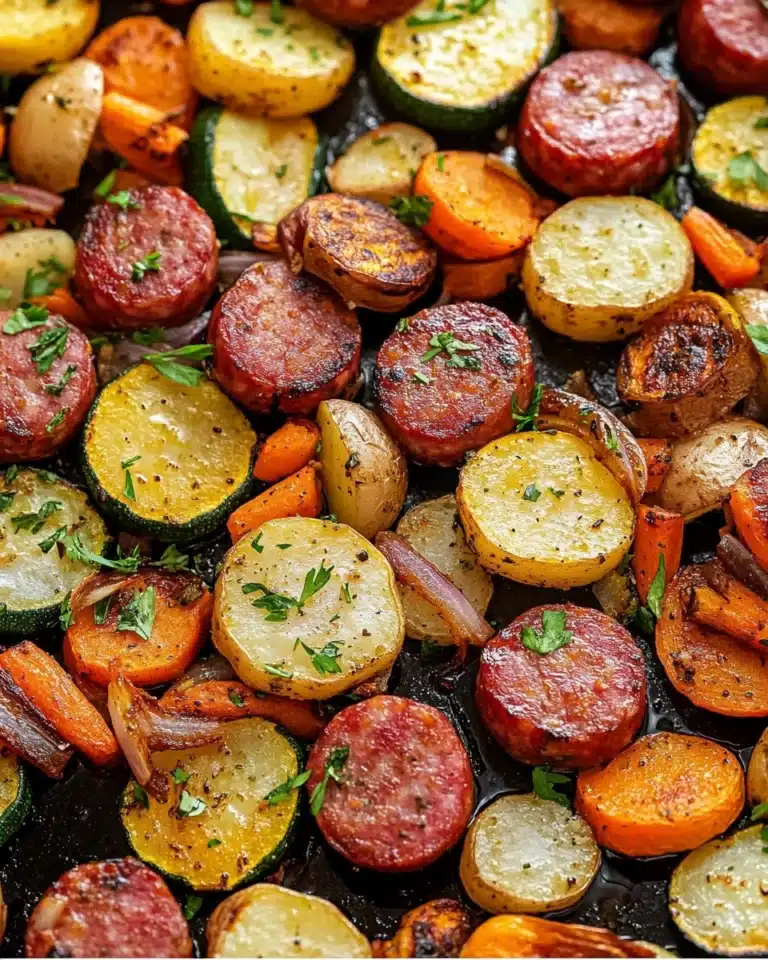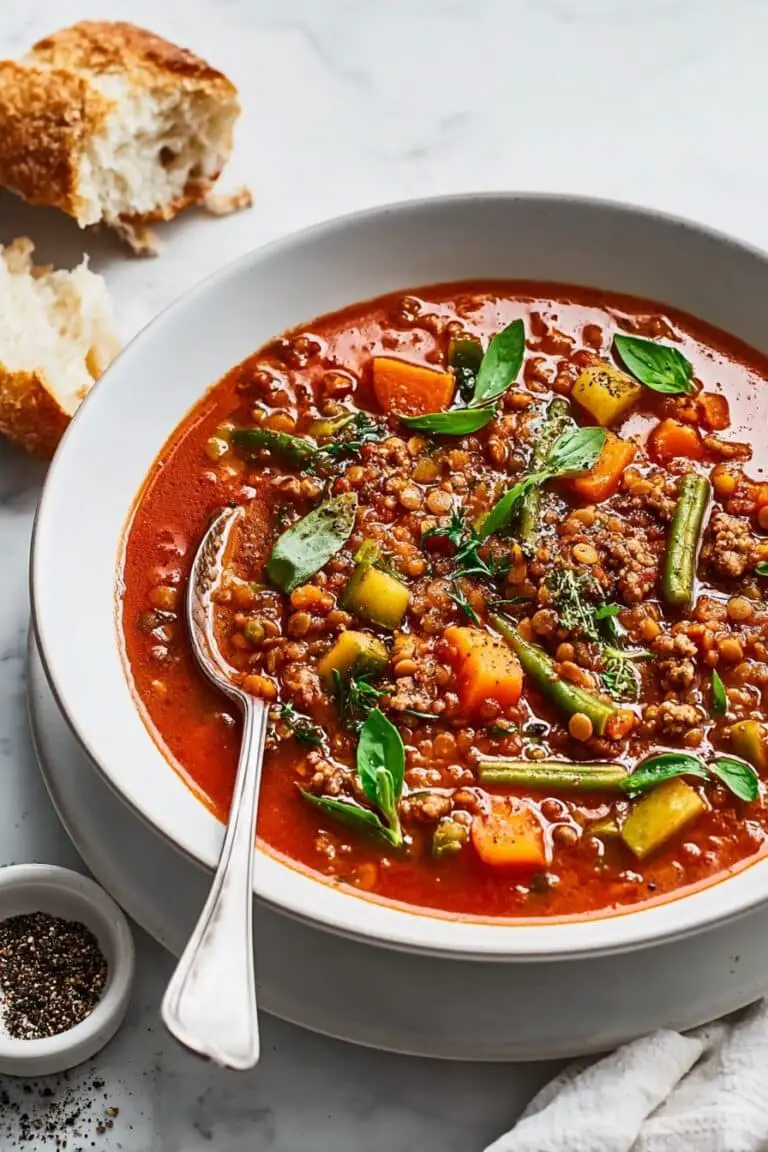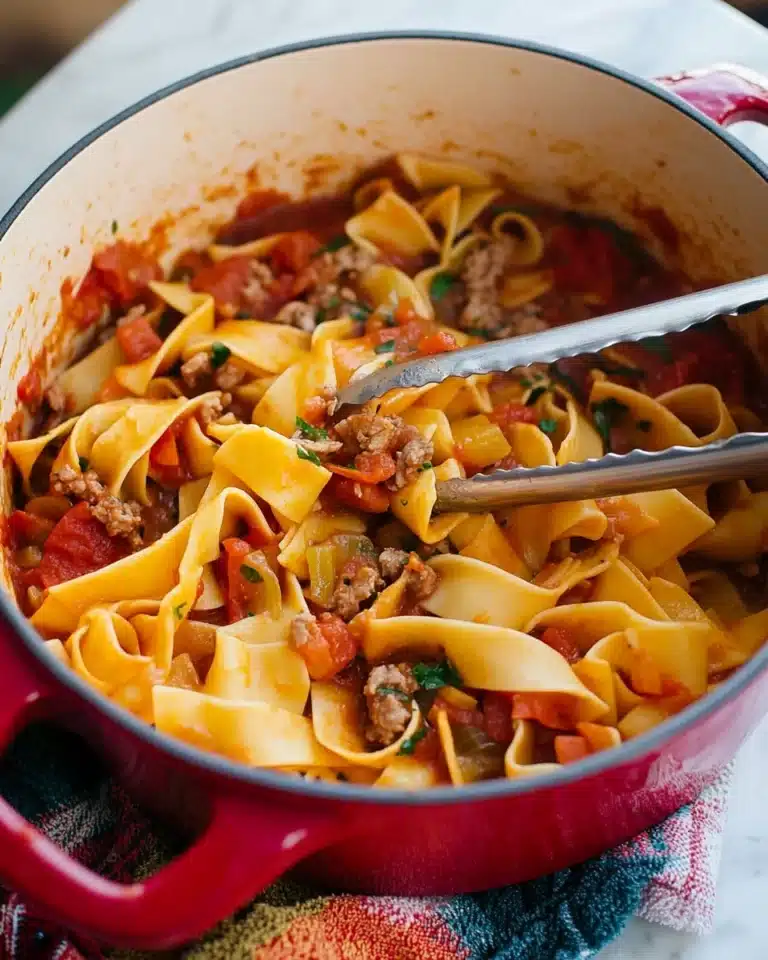Get ready for some seriously delicious and easy Canned Salmon Cakes! Imagine flaky salmon mixed with sweet potatoes, herbs, and oats, then pan-fried to golden perfection. These cakes are perfect for a quick lunch, dinner, or appetizer. Trust me, you’re going to love how simple and satisfying these are!
Why You’ll Love This Recipe
- Healthy and Nutritious: Packed with protein, omega-3s, and fiber.
- Quick and Easy: Ready in under 45 minutes with minimal ingredients.
- Flavorful and Versatile: Perfect for any meal and easily customizable.
- Budget-Friendly: Uses canned salmon, making it an affordable option.
Ingredients
Here’s what you’ll need to make these delicious Canned Salmon Cakes:
- Sweet Potatoes or Yams: Adds sweetness and creaminess.
- Canned Salmon: Provides a rich, savory flavor and omega-3s.
- Eggs: Acts as a binder and adds moisture.
- Quick Oats or Rolled Oats: Adds texture and acts as a binder.
- Garlic: Adds a pungent, aromatic flavor.
- Fresh Dill, Parsley, or Cilantro: Adds a fresh, herbaceous flavor.
- Salt and Pepper: Enhances the overall flavor.
- Coconut Oil or Avocado Oil: Used for frying, adding richness.
Note: You’ll find the complete list of ingredients, along with their exact measurements, in the printable recipe card at the bottom of this post.
How to Make Canned Salmon Cakes
Step 1: Cook the Sweet Potatoes
Combine sweet potatoes and water in a pot. Bring to a boil, reduce heat, and cook until fork-tender. Drain and mash.
Step 2: Combine Ingredients
Add salmon (including juices), eggs, oats, garlic, dill, salt, and pepper to the mashed sweet potatoes. Stir until combined. Let sit for 15 minutes.
Step 3: Form the Cakes
Preheat a skillet on medium heat with oil. Form small cakes using less than 1/4 cup of the mixture.
Step 4: Cook the Cakes
Cook for 5-7 minutes per side, until golden brown. Adjust heat as needed.
Step 5: Serve
Serve hot or cold, with your favorite dipping sauce, salad, or on an English muffin.
Pro Tips for Making the Recipe
- Don’t Overcook Sweet Potatoes: Cook until just tender to prevent mushy cakes.
- Use All the Salmon Juices: Adds extra flavor and moisture.
- Let Mixture Rest: Allows the oats to absorb moisture and bind the cakes.
- Use a Hot Skillet: Ensures crispy cakes and prevents sticking.
- Form Small Cakes: Smaller cakes hold their shape better.
How to Serve Canned Salmon Cakes
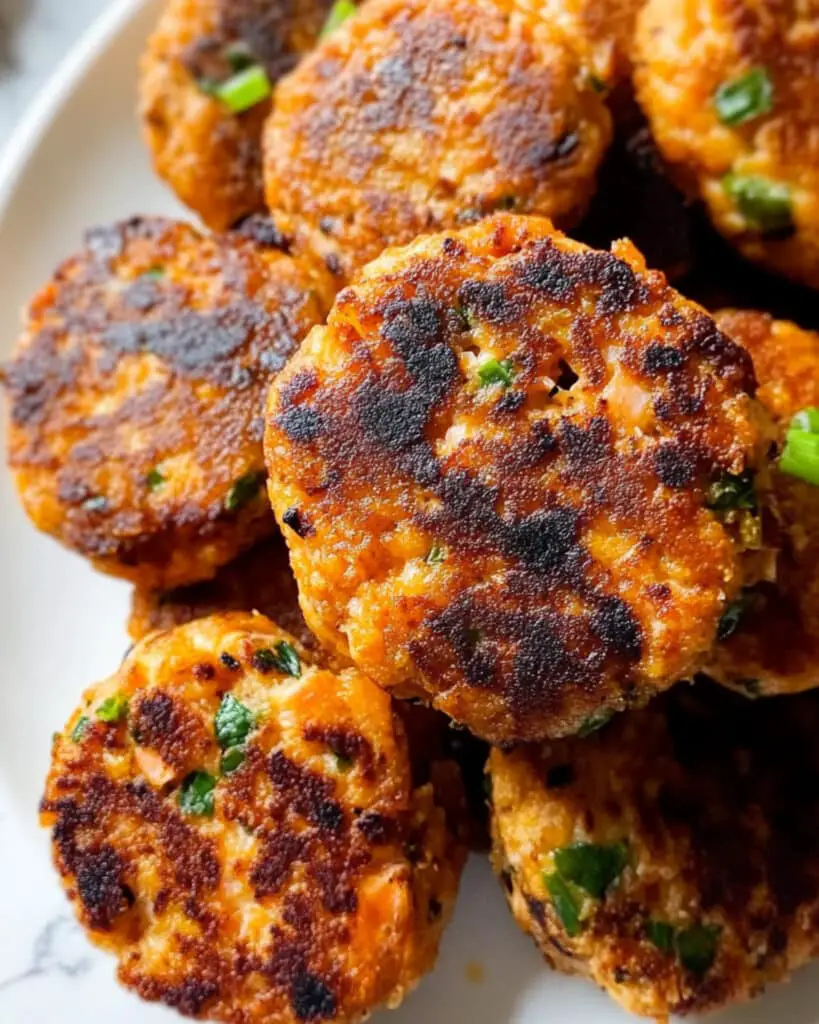
- As a Main Course: Serve with a side salad or roasted vegetables.
- As an Appetizer: Serve with dipping sauces like aioli or tartar sauce.
- On English Muffins: Make salmon cake sandwiches for a quick meal.
- With a Grain Bowl: Add to a grain bowl for a protein boost.
Make Ahead and Storage
Storing Leftovers
Refrigerate leftovers in an airtight container for up to 5 days.
Freezing
Freeze in an airtight container for up to 3 months.
FAQs
1. Can I use canned tuna instead of salmon?
- Yes, you can use canned tuna for a similar recipe.
2. Can I use breadcrumbs instead of oats?
- Yes, you can use breadcrumbs, but oats add a heartier texture.
3. Can I bake the salmon cakes instead of frying?
- Yes, you can bake them at 375°F (190°C) for about 20-25 minutes.
4. Can I add other vegetables?
- Yes, you can add vegetables like diced onions, bell peppers, or spinach.
Enjoy these delicious and easy Canned Salmon Cakes Recipe!
Print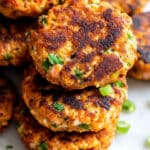
Canned Salmon Cakes Recipe
- Prep Time: 15 minutes
- Cook Time: 35 minutes
- Total Time: 50 minutes
- Yield: 24 medium cakes 1x
- Category: Appetizer
- Method: Stovetop
- Cuisine: American
Description
These Canned Salmon Cakes are a delicious and nutritious meal that’s easy to prepare. Made with canned salmon (skin and bones included for added nutrients), sweet potatoes, and oats, these cakes are a flavorful and budget-friendly option. They’re perfect for a quick lunch, dinner, or appetizer. Serve them with your favorite dipping sauce or on a salad for a healthy and satisfying meal.
Ingredients
- 2 pounds sweet potatoes or yams, skin on and cubed
- 2 cans salmon (7–8 ounces each), including skin, bones, and juices
- 2 large eggs
- 1 cup quick oats or rolled oats
- 1 large garlic clove, grated
- 1/2 cup fresh dill, parsley, or cilantro, finely chopped
- 3/4 teaspoon salt
- 1/2 teaspoon ground black pepper
- Coconut oil or avocado oil, for frying
Instructions
- Cook Sweet Potatoes:
- In a medium pot, combine sweet potatoes and enough cold water to cover.
- Cover with a lid and bring to a boil on high heat.
- Reduce heat to low and cook for 15-20 minutes, or until fork tender.
- Drain potatoes and transfer to a large mixing bowl.
- Mash sweet potatoes with a masher (or use a food processor for a smoother texture).
- Combine Ingredients:
- Add salmon (including juices) to the mashed sweet potatoes and mash a bit more.
- Add eggs, oats, grated garlic, dill/parsley/cilantro, salt, and pepper.
- Stir with a spatula until combined.
- Let the mixture sit for 15 minutes to allow the oats to soak up moisture and act as a binder.
- Form and Cook Cakes:
- Preheat a large ceramic non-stick skillet on medium heat and add a tablespoon of oil to coat. Ensure the skillet and oil are hot.
- Using less than ¼ cup of the mixture, form small salmon cakes and place them on the skillet. (Smaller patties hold their shape better.)
- Cook for about 5-7 minutes, or until golden brown.
- Carefully flip with a spatula and cook for another 5-7 minutes. (Adjust heat as needed to prevent burning.)
- Work in batches until all the mixture is used.
- Serve:
- Serve the patties hot or cold.
- Enjoy with your favorite dipping sauce, on a salad, or on a whole grain English muffin.
Notes
- Store: Refrigerate leftovers in an airtight container for up to 5 days.
- Freeze: Freeze in an airtight container for up to 3 months.
- Leaving the skin and bones in the salmon adds extra nutrients like calcium.
- Adjust the amount of herbs and seasonings to your taste.
- If the mixture is too wet, add more oats.
- If the mixture is too dry, add a little more salmon juice or an egg.
- These cakes can also be baked in the oven for a healthier option.
Nutrition
- Serving Size: 1 Serving
- Calories: 90kcal
- Sugar: 2g
- Sodium: 200mg
- Fat: 4g
- Saturated Fat: 1g
- Unsaturated Fat: 3g
- Trans Fat: 0g
- Carbohydrates: 8g
- Fiber: 2g
- Protein: 6g
- Cholesterol: 30mg

